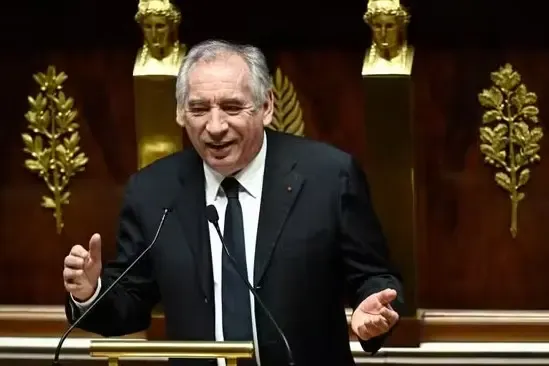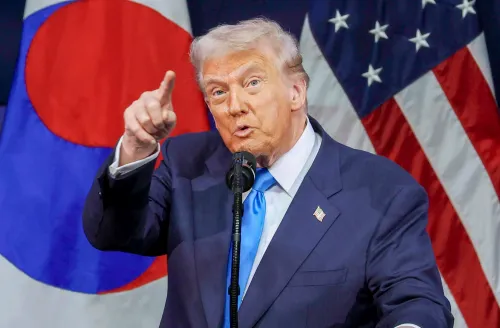French PM Bayrou Overcomes Two No-Confidence Votes

Synopsis
Key Takeaways
- Francois Bayrou survived two no-confidence votes.
- La France Insoumise (LFI) initiated the motions.
- Only 122 and 128 votes were cast in favor, respectively.
- Article 49.3 was invoked to expedite budget bills.
- Political instability continues in France.
Paris, Feb 6 (NationPress) French Prime Minister Francois Bayrou successfully navigated through a second no-confidence vote, initiated by the far-left party La France Insoumise (LFI).
Only 122 French deputies voted in favor of the motion, falling significantly short of the 289 votes required to remove Bayrou, as announced by Yael Braun-Pivet, Speaker of the French National Assembly, on Wednesday evening.
Earlier that day, Bayrou had already withstood a separate no-confidence vote, as reported by Xinhua.
According to the results disclosed by Braun-Pivet, just 128 deputies supported the motion.
The LFI party raised two no-confidence motions against Bayrou after he invoked Article 49.3 of the French Constitution on Monday to expedite France's 2025 state budget bill and the initial part of the Social Security financing bill without a parliamentary vote.
LFI lacked the backing of the far-right National Rally (RN) and its left-wing counterpart, the Socialist Party (PS), which led to its inability to gather sufficient votes to unseat Bayrou in both instances.
French President Emmanuel Macron appointed Bayrou as Prime Minister on December 13 after Michel Barnier was removed in a no-confidence vote.
The continuation of Bayrou's government is a relief for Macron, who has faced mounting calls for resignation since the middle of last year but remains determined to serve until the end of his term in 2027. Many analysts and allies are perplexed by the President's decision to initiate snap parliamentary elections last summer, which allowed the far-right to gain unprecedented influence in a fragmented Parliament.
France has been in a state of political turmoil since Macron called a surprise snap election in June, resulting in a contentious hung parliament where no single party holds a majority.
Disputes over the budget have unsettled markets and led to the fall of Bayrou's predecessor, Michel Barnier, after merely three months.
Bayrou's administration has managed to stay afloat due to costly concessions made to both the left and far-right factions to push legislation forward.
"This budget is not flawless. It is an essential measure as our nation cannot function without a budget," Bayrou remarked to lawmakers prior to the vote.
Meanwhile, Finance Minister Eric Lombard stated that the failure of the no-confidence motion was "a positive development" for France.
The budget aims to decrease the deficit, increase taxes on large companies and the wealthy, and reduce spending.









